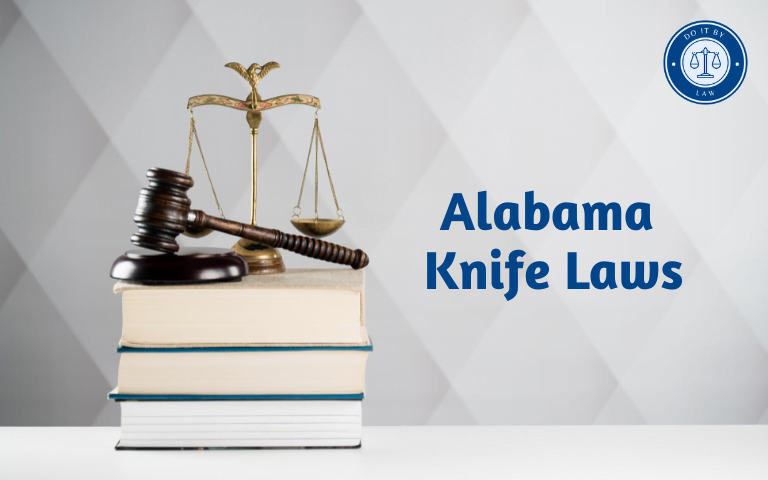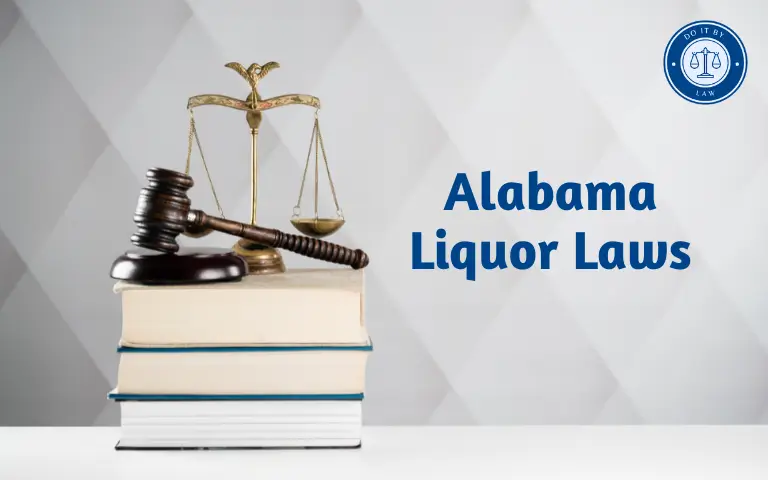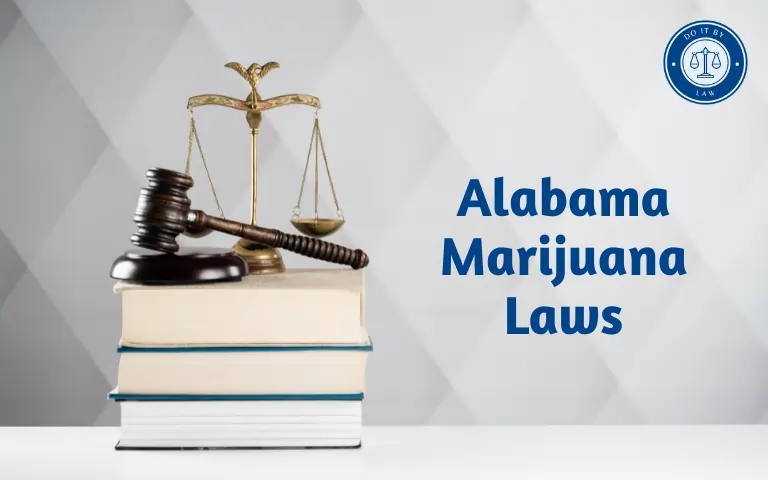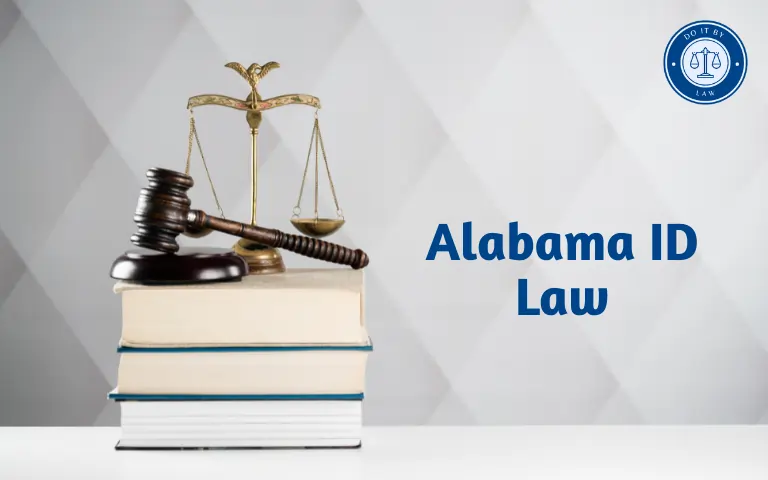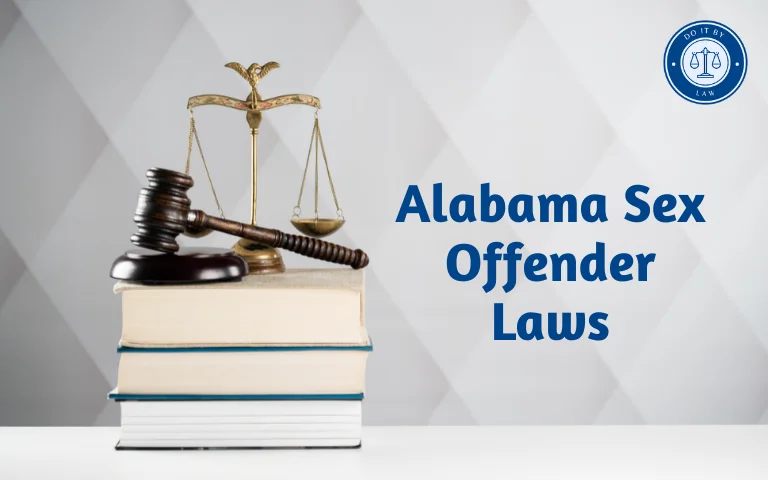Alabama Knife Laws: Your Guide to Legal Carry
Navigating Alabama knife laws can be confusing, especially if you’re worried about fines or legal trouble for carrying a pocket knife, fixed blade, or switchblade.
Whether you’re in Birmingham, Mobile, or Huntsville, understanding knife laws in Alabama is essential to stay compliant.
Are you unsure about Alabama concealed knife laws or Alabama knife length laws? Our guide simplifies the rules, covering Alabama open carry knife laws, Alabama automatic knife laws, and more, updated for 2025. Protect yourself from penalties and carry with confidence. Know more about your rights today!
Why Alabama State Knife Laws ?
Alabama imposes no statewide bans on specific knife types. You may legally own and carry:
- Automatic/switchblade knives, gravity knives, butterfly (balisong) knives, stilettos, toothpick knives, Bowie knives, and all folding or fixed-blade knives (Tekto Knives, BLADE ADDICT).
- No blade-length restrictions under state law, though some cities (e.g., Montgomery) may limit blade length on municipal property.
- Concealed carry of most knives is permitted without a permit—provided there’s no intent to harm. A statute banning concealed Bowie knives was repealed effective January 1, 2023 (Knife Rights).
| Knife Rule | Details |
|---|---|
| Legal to Own & Carry | All knives, including switchblades, balisongs, gravity knives, fixed blades |
| Concealed Carry | Permitted for all knives; no special permit required |
| Blade-Length Limits | None statewide (local ordinances may apply) |
| School Zones | Carrying a “deadly weapon” (including knives) on K–12 premises is a felony under § 13A-11-72 (American Knife and Tool Institute). |
2. Purpose of These Laws
- Public Safety: By focusing on intent rather than blade type, Alabama law aims to deter violent misuse without hampering lawful ownership.
- Uniformity: State preemption bars localities from enacting stricter knife bans, ensuring consistency for residents and visitors alike (Handgun Law).
- Flexibility: Law-abiding citizens—hunters, anglers, EDC enthusiasts—enjoy broad freedom to carry tools and collectibles.
3. Why Residents & Visitors Must Know These Rules
- Avoid Missteps: Not every jurisdiction is knife-friendly; knowing local ordinances (e.g., city parks, schools) helps you stay compliant.
- Travel Confidence: When crossing county lines—or borders into neighboring states—it’s critical to understand that Alabama’s permissive stance may not apply elsewhere.
- Business Trust: Retailers who clearly communicate these rights build credibility and avoid liability when selling knives.
4. Consumer Rights Under Alabama Knife Law
- Right to Purchase: No type of lawful knife can be banned by state law; you cannot be refused sale unless you’re a minor.
- Age Restrictions: Selling a Bowie knife or similar “deadly weapon” to a minor is a misdemeanor, punishable by $50–$500 under § 13A-11-57 (Justia Law).
- Local Preemption: If a local ordinance conflicts by banning a knife type, state law overrides—protecting consumers and dealers alike.
Knowing your rights—and the few remaining restrictions—lets you carry, sell, and enjoy knives in Alabama with confidence.
Whom Do Alabama Knife Laws Apply To?
Understanding who is covered under Alabama knife laws is just as important as knowing the laws themselves. Alabama’s knife regulations apply to nearly everyone in the state, but certain groups face special rules or restrictions.
| Group | Are Knife Laws Applied? |
|---|---|
| Alabama residents | ✅ Yes — full application of state law |
| Visitors/tourists | ✅ Yes — covered while inside Alabama |
| Minors | ✅ Yes, with extra rules on sales |
| Felons | ✅ Yes, with strict weapon possession bans |
| School/public staff | ✅ Yes, with workplace and location restrictions |
👤 General Public
Alabama knife laws apply to:
- Residents — Anyone living in Alabama must follow state and local knife rules.
- Visitors and travelers — Out-of-state visitors are subject to Alabama knife laws while within state borders.
- Knife buyers and sellers — Retailers, online sellers, and customers must follow Alabama’s rules on legal knives and age restrictions.
🔞 Minors
- Selling or giving a Bowie knife or similar deadly weapon to a minor (under 18) is a misdemeanor under Alabama law (§ 13A-11-57).
- Minors can legally possess or carry most knives, but parents and sellers must be aware of their responsibilities.
🚫 Felons and Prohibited Persons
- Convicted felons are prohibited from possessing any deadly weapon in Alabama, which can include many fixed-blade knives, large Bowie knives, or combat knives (§ 13A-11-72).
- Felons may face criminal penalties even for knives that are legal for others.
🏛️ Public and School Employees
- School employees (including teachers, staff, and volunteers) cannot carry knives on K–12 school grounds, as knives are classified as deadly weapons.
- Public employees (like courthouse or government building staff) must follow local and workplace-specific knife rules.
⚠️ Why It Matters
Knowing who is covered by Alabama knife laws helps avoid unintentional legal trouble. While Alabama’s laws are generally knife-friendly, special rules for felons, minors, and sensitive locations (like schools) are strictly enforced.
Alabama Knife Carry Laws
Understanding Alabama knife carry laws is essential whether you carry for work, self-defense, or outdoor use. The state offers broad freedom for law-abiding citizens—but there are a few key rules to keep in mind, especially for concealed carry, blade length, and restricted persons like felons.
🔓 Alabama Open Carry Knife Laws
In Alabama, open carry of knives is legal for nearly all types of blades:
- You can openly carry pocket knives, fixed-blade knives, switchblades, and even large blades like Bowie knives.
- There are no statewide restrictions on blade length when carried openly.
- The only major restriction applies to school property, where knives are considered “deadly weapons” and are strictly prohibited (§ 13A-11-72).
🔒 Alabama Concealed Knife Laws
As of January 1, 2023, Alabama repealed its laws restricting concealed carry of Bowie knives and similar blades, meaning:
- You can now carry most knives concealed without a permit, including switchblades and fixed blades.
- However, if a knife is carried with unlawful intent (e.g., to harm), it may still be considered a criminal offense regardless of carry method.
| Carry Type | Legal? | Restrictions |
|---|---|---|
| Open Carry | ✅ Legal | No blade limit statewide |
| Concealed Carry | ✅ Legal (as of 2023) | Intent to harm makes it illegal |
| On School Grounds | ❌ Illegal | Felony offense for carrying any deadly weapon |
🔧 Alabama Pocket Knife Laws
Pocket knives are considered legal and carry-friendly in all forms:
- No restrictions on automatic-opening (switchblade) or assisted-opening knives.
- Folding knives are legal for both open and concealed carry.
- Local laws may still apply on municipal property (e.g., city halls, courthouses), so caution is advised.
📏 Alabama Knife Length Laws
Alabama does not restrict knife length under state law. This means:
- You can legally carry knives with blades over 3″, 5″, or even 10″, so long as you are not violating other laws (such as school zone restrictions or unlawful intent).
- However, private property or local building rules (like in courthouses) may still enforce length-based rules.
🚫 Restrictions for Felons: Fixed Blade Knife Laws in Alabama
Felons in Alabama face significant restrictions on carrying weapons, including knives:
- Under Ala. Code § 13A-11-72, it is illegal for a convicted felon to possess a deadly weapon, which includes many fixed-blade knives (e.g., Bowie knives, daggers).
- A “deadly weapon” is typically any knife designed or adapted for the purpose of offense or defense.
- Felons may still legally possess simple utility knives or small folding knives, but caution is advised due to interpretation risks.
🔗 Related Article: How to Legally Carry a Knife in Alabama
Alabama Fixed Blade and Bowie Knife Laws
Alabama has a long history with fixed blade knives—especially Bowie knives, which were once banned but are now fully legal under state law. Here’s what you need to know to carry and own them confidently.
⚖️ Regulations for Alabama Fixed Blade Knife Laws
- Fixed blade knives, including hunting knives, daggers, and combat knives, are legal to own and carry in Alabama.
- As of January 1, 2023, Alabama repealed its long-standing concealed carry ban on Bowie knives and similar blades.
- Open carry and concealed carry of fixed blades are now both legal without a permit, provided you are not carrying with intent to harm or breaking other laws (like entering a school zone).
| Knife Type | Legal to Own? | Open Carry? | Concealed Carry? |
|---|---|---|---|
| Fixed blade knives | ✅ Yes | ✅ Yes | ✅ Yes (as of 2023) |
| Bowie knives | ✅ Yes | ✅ Yes | ✅ Yes (as of 2023) |
🔍 What Is Considered a Bowie Knife in Alabama?
Alabama law historically defined a Bowie knife broadly as:
- A large, fixed-blade knife with a clipped point
- Typically used for hunting, fighting, or self-defense
- Often featuring a crossguard or hand guard
There is no exact blade length or weight requirement to classify a knife as a Bowie knife, so the term generally covers any large combat-style fixed blade.
📜 Historical Context: Alabama Law 1897 Outlawing Bowie Knives
- In 1897, Alabama passed one of the earliest U.S. laws banning the concealed carry of Bowie knives, along with other weapons like brass knuckles and pistols.
- The law aimed to reduce violence and dueling, as Bowie knives were widely associated with personal combat and frontier disputes.
- This ban stood for over 125 years until it was repealed in 2022 (effective January 1, 2023), as part of a larger movement toward constitutional carry and weapons law reform.
✅ Key Takeaway: Today, Alabama residents and visitors can legally own, open carry, and concealed carry fixed blade and Bowie knives without a permit—but they should still avoid prohibited places like schools and government buildings.
🔗 Related Article: How to Legally Carry a Knife in Alabama
Alabama Automatic and Butterfly Knife Laws
Alabama has some of the most relaxed knife laws in the U.S., and that includes automatic knives, switchblades, and butterfly knives (balisongs). But there are still important details and local variations you should know before carrying or owning these knives.
| Type | Legal in Alabama? | Definition |
|---|---|---|
| Switchblade | ✅ Yes | Blade opens automatically with button, switch, or pressure |
| Assisted opener | ✅ Yes | Blade starts manually but assisted by internal spring mechanism |
| Spring-loaded knife | ✅ Yes | General term covering switchblades and assisted openers |
⚙️ Rules for Alabama Automatic Knife Laws
- Automatic knives (also called switchblades or spring-loaded knives) are legal to own, buy, sell, and carry in Alabama.
- Both open carry and concealed carry are allowed without a permit.
- Alabama does not limit blade length, even for automatics.
| Knife Type | Legal to Own? | Open Carry? | Concealed Carry? |
|---|---|---|---|
| Automatic knives | ✅ Yes | ✅ Yes | ✅ Yes |
| Spring-loaded knives | ✅ Yes | ✅ Yes | ✅ Yes |
| Switchblades | ✅ Yes | ✅ Yes | ✅ Yes |
🦋 Alabama Butterfly Knife Laws
- Butterfly knives (balisongs) are fully legal in Alabama.
- You can own, open carry, and concealed carry them without restriction.
- Like other knives, carrying them on school property or in restricted government areas is illegal.
📍 Local Variations (Example: Dothan, Alabama)
- Alabama state law preempts most local knife laws, meaning cities like Dothan cannot ban automatic or butterfly knives on their own.
- However, local ordinances can control where you carry (such as in municipal buildings, courthouses, or parks).
- Always check city or county rules before carrying in sensitive areas.
Automatic knives, spring-loaded knives, and butterfly knives are legal across Alabama—but always check for local carry rules in places like Dothan or Montgomery. Carry smart, carry legal!
Alabama Knife Laws by City
While Alabama state law generally allows broad knife ownership and carry, local city ordinances can impose additional rules. Knowing the differences between cities like Birmingham, Mobile, Huntsville, Gulf Shores, and Montgomery can help you avoid unexpected legal issues.
| City | Notable Local Rules |
|---|---|
| Birmingham | 3-inch blade limit; bans in parks, city buildings |
| Mobile | No broad ban; restrictions at events and public buildings |
| Huntsville | Follows state law; avoid federal/military areas |
| Gulf Shores | Beach and boardwalk restrictions; check during festivals |
| Montgomery | Bans in Capitol, government buildings; event-based limits |
🌆 Birmingham, Alabama Knife Laws
- Birmingham city code restricts carrying knives over 3 inches in public spaces.
- Carrying knives (including pocket knives and fixed blades) is prohibited in city buildings, schools, and public parks.
- Even though Alabama allows concealed carry of most knives, Birmingham’s local rules still apply.
🌊 Mobile, Alabama Knife Laws
- Mobile follows state law but may restrict knife carry in city buildings.
- Large public events (festivals, concerts) often have temporary knife bans, so check before attending.
- No specific citywide ban on butterfly knives or automatic knives.
🚀 Huntsville, Alabama Knife Laws
- Huntsville generally follows Alabama state law, allowing open and concealed carry.
- Like other cities, municipal buildings, schools, and court facilities are off-limits for knife carry.
- Be mindful of Redstone Arsenal or other federal/military property nearby, where federal rules override state law.
🏖 Gulf Shores, Alabama Knife Law
- Gulf Shores has tourism-focused rules—carrying knives on the beach or in tourist-heavy public areas (like the pier or boardwalk) can be restricted.
- Check local signs and regulations, especially during public events or festivals.
🏛 Montgomery, Alabama Knife Laws
- As the state capital, Montgomery has added security around government buildings and the Capitol where knives are banned.
- General public carry of knives is allowed under state law, but watch for event-specific rules in public parks and downtown areas.
⚠️ Impact of Local Ordinances on Knife Carry in Alabama
Even though Alabama state law allows open and concealed carry of most knives, local ordinances can:
- Set blade length limits
- Ban knives in public spaces or buildings
- Enforce event-based restrictions
Always check city-specific rules before carrying a knife, especially when traveling between counties or attending public events.
Special Considerations and Restrictions Under Alabama Knife Laws
While Alabama has some of the most knife-friendly laws in the U.S., there are special considerations and restrictions you need to know—especially regarding age limits, specialty knives, and carrying knives in vehicles.
| Specialty Knife Type | Legal in Alabama? |
|---|---|
| Push dagger | ✅ Yes |
| Karambit | ✅ Yes |
| Butterfly knife | ✅ Yes |
| Throwing knives/stars | ✅ Yes (check local rules) |
🔞 Age Restrictions Under Alabama Knife Laws
- Alabama law prohibits selling or giving deadly weapons, including certain knives, to anyone under 18.
- This includes large fixed blades, Bowie knives, switchblades, and push daggers.
- While minors can possess smaller knives (like pocket knives), parents and sellers can face penalties if they provide deadly weapons to a minor (§ 13A-11-57).
🗡 Are Push Daggers and Specialty Knives Legal in Alabama?
- Push daggers are legal to own, buy, sell, and carry in Alabama.
- There are no state-level bans on:
- Push daggers
- Karambits
- Assisted openers
- Butterfly knives
- Throwing stars or other specialty knives
However, intent matters: carrying with the intent to commit a crime or bringing knives into prohibited places (like schools or courthouses) is illegal.
🚗 Alabama Knife Laws: Carrying Fixed Blades in Vehicles
- Alabama allows you to carry fixed blade knives, including large hunting or combat knives, in your car or truck.
- There’s no blade length limit or concealed carry permit requirement for knives in vehicles.
- Important: Avoid carrying knives on school grounds or into restricted areas, even if they are inside your car.
| Knife in Vehicle | Legal in Alabama? |
|---|---|
| Fixed blade (hunting knife) | ✅ Yes |
| Folding pocket knife | ✅ Yes |
| Automatic/switchblade | ✅ Yes |
⚠️ Key Reminders
- Selling deadly weapons to minors = illegal
- Carrying knives in cars = legal, but respect restricted locations
- Specialty knives = legal statewide, but intent and location matter
Changes from Alabama Knife Laws 2023 to Alabama Knife Laws 2024
Alabama has seen important updates to its knife laws over the past few years, especially regarding concealed carry, automatic knives, and Bowie knives. Here’s a clear breakdown of what’s changed and what may be coming next.
| Area | 2023 Law | 2024 Law |
|---|---|---|
| Concealed carry of Bowie/fixed blades | Legal without a permit (after the repeal of the 1897 Bowie knife concealed carry ban, effective Jan 1, 2023) | Still legal without a permit — no major change in 2024 |
| Automatic/switchblade knives | Legal to own and carry without restrictions | Still legal in 2024 |
| Local control | State law preempts most local restrictions, but cities may control carry in municipal buildings | Continues in 2024 |
| Minors | Illegal to sell/give deadly weapons to anyone under 18 (§ 13A-11-57) | Same restriction applies in 2024 |
✅ Summary: Alabama’s knife laws remained stable from 2023 to 2024, continuing the trend of relaxed carry and ownership rights.
Comparison With Past Alabama Knife Laws (2019–2020)
| Year | Key Features |
|---|---|
| 2019 | Bowie knife concealed carry ban still in effect (from 1897); automatic knives legal; local variation possible |
| 2020 | Similar to 2019; no state-level permit system for knives; automatic knives legal; Bowie ban still active |
| 2023 | Major reform: concealed carry of Bowie knives/fixed blades legal without permit |
| 2024 | No major new changes; relaxed carry laws continue |
The biggest shift happened between 2022 and 2023, when Alabama repealed its long-standing ban on concealed carry of Bowie knives and large fixed blades.
🔮 Potential Future Updates to Alabama Concealed Carry Permit Knife Law
While no official bills have passed yet, possible future updates being discussed by legal and knife-rights groups include:
- Clarifying knife carry laws inside vehicles and across school zones
- Creating uniform blade length limits across cities to reduce local confusion
- Introducing a voluntary permit system for carrying concealed knives across state lines
- Expanding reciprocity agreements with other states for knife carry and self-defense laws
Knife rights organizations are also pushing to protect preemption laws, which stop local governments from overriding state knife rules.
Alabama’s knife laws are among the most permissive in the U.S. — and they stabilized in 2024 after big reforms in 2023. Watch for possible future improvements that clarify vehicle carry, school zone restrictions, and interstate reciprocity.
Penalties for Violating Alabama Knife Laws
Understanding the penalties for violating Alabama knife laws is essential to avoid legal issues. Here’s a quick overview of common violations and their associated penalties:
| Violation | Penalty |
|---|---|
| Carrying a Prohibited Knife (e.g., in restricted areas) | Misdemeanor charge, fines up to $500, confiscation of the weapon |
| Selling or Giving a Knife to a Minor | Class A misdemeanor, up to 1 year in jail, fines up to $6,000 |
| Carrying a Knife Concealed Without a Permit (where prohibited) | Misdemeanor charge, fines up to $500, confiscation of the knife |
| Carrying a Knife with Intent to Commit a Crime | Felony charge, fines up to $15,000, up to 10 years in prison |
| Violating Local Ordinances (e.g., blade length limits) | Fines up to $1,000, community service, or probation |
🚨 Aggravating Factors
- Repeat offenses can lead to heavier penalties.
- Possession during another crime or on federal property can lead to severe legal consequences.
🔍 Avoid costly penalties! Make sure you understand the Alabama knife laws fully. Consult our experts for guidance and stay legally safe.
Controversies and Challenges Related to Alabama Knife Laws
While Alabama’s knife laws are generally permissive, there have been ongoing controversies and challenges that have raised questions about their interpretation, fairness, and enforcement. Here’s an overview of the main issues surrounding the state’s knife laws.
| Issue | Details | Controversy | Challenge |
|---|---|---|---|
| Bowie Knife Concealed Carry | Repeal of the ban on concealed carry of Bowie knives in 2023. | Supporters argue it restores personal freedom, while opponents fear it may increase violence. | Varying local interpretations of what constitutes a Bowie knife, leading to inconsistency in enforcement. |
| Knife Carry at Public Events | Temporary knife bans are often imposed at public events like festivals or parades. | Event organizers may impose knife bans, which some consider overreaching when knives are carried for personal defense or hobby purposes. | Lack of clarity in law about temporary restrictions at public events creates confusion for both owners and law enforcement. |
| Local vs. State Knife Laws | State preemption prevents local governments from enacting stricter knife laws. | Local authorities believe they should have the right to impose tighter restrictions, especially in urban areas. | The balance between local control and statewide consistency is debated, potentially leading to court cases. |
| Specialty Knife Regulations | Fewer restrictions on specialty knives like push daggers, butterfly knives, and karambits. | Opponents argue these knives are too dangerous, while supporters claim they are no different from pocket knives. | Ongoing discussions about whether specialty knives should face additional regulation due to their design. |
| Knife Carry in Restricted Areas | Knives are prohibited in schools, government buildings, and federal properties. | Knife owners argue that some of these restrictions are overly broad, punishing law-abiding citizens for carrying knives in non-violent contexts. | No uniformity about where knives should be banned in public spaces, creating confusion about restrictions. |
| National Impact of Alabama’s Laws | Alabama’s knife laws may influence other states, as more push for freer knife carry laws. | The growing movement for freer knife carry laws may face resistance from those who believe stricter laws are needed for public safety. | Alabama’s evolving stance on knife laws may prompt changes in other states, potentially leading to national debate. |
⚖️ Debate Over Bowie Knife Concealed Carry
Before 2023, Alabama had a century-old ban on the concealed carry of Bowie knives. With the repeal of this law in January 2023, it became legal to carry large, fixed-blade knives concealed without a permit.
Controversy:
- Opponents of the repeal argue that allowing concealed carry of large knives could increase the risk of violence.
- Supporters assert that the repeal is a restoration of personal freedom and a right to self-defense.
Challenge:
- Local jurisdictions may continue to have varying interpretations about what constitutes a “Bowie knife”, leading to inconsistencies in enforcement.
🛑 Confusion Over Knife Carry in Public Events
Background:
Alabama’s laws allow most knives to be carried freely, but public events often create challenges.
Controversy:
- Event organizers in cities like Birmingham or Montgomery may impose temporary knife bans at festivals, parades, or concerts.
- These temporary bans can be seen as overreaching, especially when knives are carried for personal defense or are part of a collector’s hobby.
Challenge:
- The lack of clarity in Alabama law about temporary restrictions at public events creates confusion for both knife owners and law enforcement, leading to potential legal issues for knife carriers.
🚓 Local Restrictions vs. State Preemption
Background:
State preemption laws in Alabama prohibit local governments from enacting more restrictive knife laws than the state’s. This is to ensure a uniform standard across the state.
Controversy:
- Some local authorities believe they should have the right to impose tighter restrictions, particularly in urban areas with higher crime rates.
- Knife rights advocates argue that local regulations undermine personal freedoms and create confusion.
Challenge:
- The balance between local control and statewide consistency continues to be a topic of debate, with court cases potentially shaping the future of Alabama’s knife laws.
🗡️ Push for Regulation of Specialty Knives
Background:
Alabama has few restrictions on specialty knives like push daggers, butterfly knives, and karambits. These knives are popular among collectors and self-defense enthusiasts.
Controversy:
- Opponents argue that these knives are inherently dangerous due to their design and could increase risk during conflicts.
- Supporters claim that these knives are no different from pocket knives and should not be subjected to stricter regulations.
Challenge:
- There’s a growing movement to either regulate or ban certain specialty knives in Alabama, with ongoing discussions about whether their unique design warrants special treatment under the law.
🏛️ Challenges for Knife Owners in Restricted Areas
Background:
Even with permissive knife laws, there are still prohibited places where knives are illegal, such as schools, government buildings, and federal property.
Controversy:
- Knife owners argue that some of these restrictions, especially in public parks and sports venues, may be too broad.
- Opponents of these restrictions claim that law-abiding citizens are unfairly punished for carrying knives in non-violent contexts.
Challenge:
- There is no uniformity about where knives should be banned in public spaces, and disputes often arise about whether “public safety” justifies the overly broad bans.
🌐 Potential National Impact
While the debates in Alabama may seem local, they can have national implications for the future of knife laws, especially as states like Alabama continue to push for less restrictive regulations. The nationwide movement for freer knife carry laws continues to gain momentum, and Alabama’s evolving stance could influence similar changes in other states.
🔍 Stay informed about the current controversies and changes in Alabama’s knife laws. Consult our experts for guidance on how these laws might affect your rights and responsibilities.
🔗 Related Article: How to Legally Carry a Knife in Alabama
Conclusion
Understanding Alabama knife laws is essential for anyone who owns, carries, or plans to purchase a knife in the state.
- Most knives — including automatic knives, butterfly knives, switchblades, and Bowie knives — are legal to own and carry in Alabama.
- There’s no statewide blade length limit, but some cities (like Birmingham) have local restrictions.
- Concealed carry of large knives like Bowie knives became legal without a permit starting in 2023.
- Selling or giving deadly weapons to minors under 18 is illegal.
- Always avoid carrying knives into schools, courthouses, or federal property, where separate laws apply.
⚠️ Why Knowing Alabama Knife Laws Matters
Even though Alabama has some of the most knife-friendly laws in the U.S., misunderstanding local rules or restricted areas can still lead to fines, confiscation, or even criminal charges.
Knowing the law keeps you safe, confident, and legal—whether you’re carrying a pocket knife, fixed blade, or specialty knife.
👉 Don’t risk a fine — know more about Alabama knife laws and consult our experts!
We’re here to help you stay informed and protect your rights.

